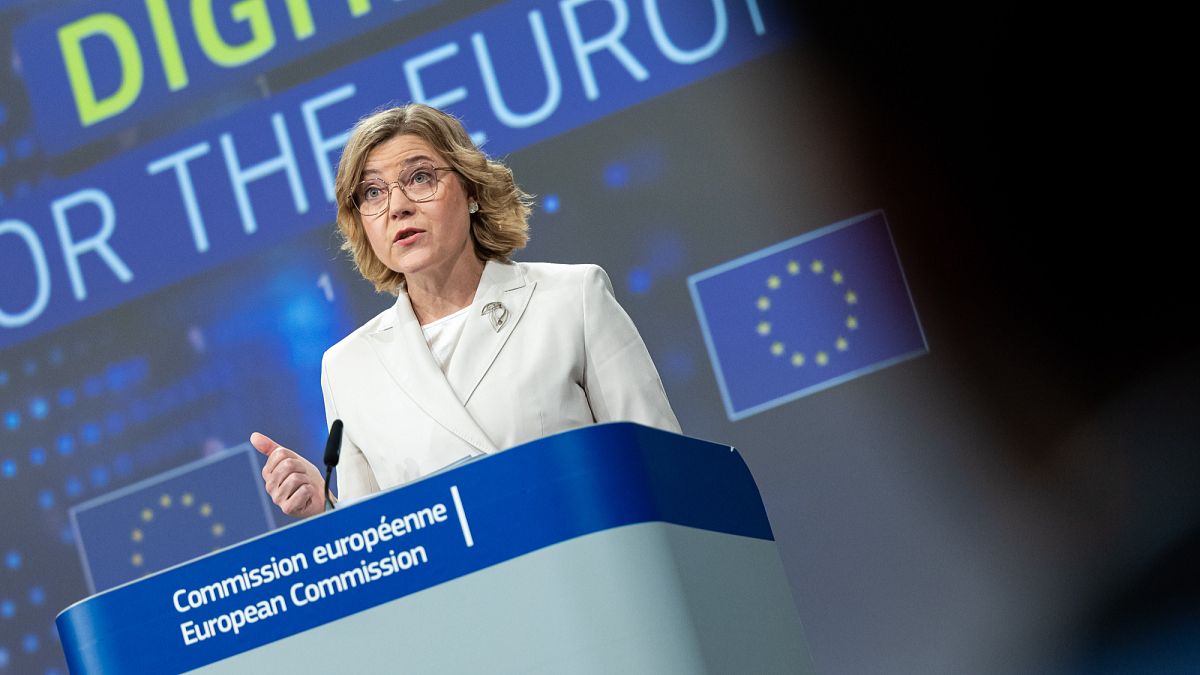Published on
The EU published a digital strategy on Thursday to diversify and expand digital alliances with “like-minded partners” such as Japan, South Korea, Canada and India, but no mention was made of the US.
This year, digital trade agreements with Singapore and South Korea were signed to facilitate data flows – despite critics warning it could pave the way for threats to personal data.
The bloc also plans to structure its growing diplomatic network through the creation of a Digital Partnership Network, aimed at connecting these relationships in a more strategic and coordinated way.
But while the strategy highlights a wide array of partners, the absence of references to further meeting under the EU-US Trade and Technology Council (TTC) with the United States was notable. This forum of discussion between the two blocs on trade and technology was created in 2020 to de-escalate tensions during US President Donald Trump’s first mandate.
Quizzed by Euronews on the future of the TTC, Tech Commissioner Henna Virkkunen replied that trade negotiations were currently the priority – without elaborating.
While the EU’s other big tech competitor, China, is also absent from the strategy – Virkkunen said that digital cooperation will be discussed during the July 2025 EU-China summit.
A regional approach
In its immediate neighbourhood, the bloc is prioritising integration with the EU Digital Single Market notably for Ukraine, Moldova and the Western Balkans – to assist integration into the EU. These countries will benefit from support to align with EU rules on areas such as digital identity, secure infrastructure and regulatory frameworks, paving the way for potential mutual recognition of digital services.
In Africa, Asia and Latin America, the strategy builds on the Global Gateway initiative, the EU’s strategic response to China’s Belt and Road adopted in 2021. Through this framework, the EU is co-financing the deployment of secure submarine cables, AI factories, and digital public infrastructure, while, according to Commissioner Virkkunen, promoting European tech standards and regulatory models abroad.
What’s coming next
The Commission said that they will move forward with the implementation of new digital partnerships, including preparations for agreements with countries in the Southern Neighbourhood and sub-Saharan Africa. A dedicated Tech Business Offer, a mix of private and public EU investment, will be rolled out to support digital projects in partner countries.
A first meeting of the new Digital Partnership Network is also planned, involving representatives from the EU and its partner countries. Meanwhile, joint research programmes are set to be launched with Japan, Canada and South Korea, notably in quantum technologies and semiconductors.

